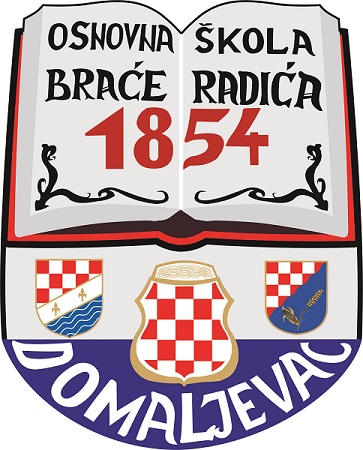The Paleo Diet Regimen: A Comprehensive Overview to the Stone Age Diet Plan
The Paleo diet regimen, likewise referred to as the Rock Age diet or the Neanderthal diet plan, has gotten significant popularity over the last few years. It is a way of life strategy to nourishment that looks for to mimic the consuming patterns of our ancestors from the Paleolithic era, around 2.5 million to 10,000 years earlier. Although it is tough to exactly duplicate the specific diet plan of our forefathers, the concepts behind the Paleo diet are rooted in transformative biology and the premise that our bodies are much better adjusted to the foods eaten throughout that time.
The essential idea of the Paleo diet regimen revolves around the idea that the farming transformation, which introduced the growing of grains, vegetables, and dairy items, caused a significant shift in our dietary habits. Supporters argue that the human gastrointestinal system has not fully adapted to refine these brand-new food sources, causing various wellness issues. By removing these modern-day staples and rather consuming whole, nutrient-dense foods, the Paleo diet aims to optimize health and stop persistent illness.
The Principles of the Paleo Diet
At its core, the Paleo diet regimen urges the usage of whole, unrefined foods that were readily available to our forefathers. This consists of:
- Lean meats: Grass-fed beef, venison, bison, poultry, and wild-caught fish.
- Vegetables and fruits: A range of colorful vegetables and fruits, idealis which provide important vitamins, minerals, and anti-oxidants.
- Nuts and seeds: Almonds, walnuts, macadamia nuts, flaxseeds, chia seeds, etc, which use healthy and balanced fats and protein.
- Healthy fats: Avocados, coconut oil, olive oil, and ghee are all suggested resources of fats.
- Eggs: A fantastic source of healthy protein and crucial nutrients.
In contrast, the adhering to foods are normally avoided in the Paleo diet regimen:
- Grains: Wheat, barley, rice, and oats are omitted as a result of their high carbohydrate content and potential unfavorable impacts on intestine wellness.
- Legumes: Soybeans, peanuts, lentils, and beans are avoided due to their lectin and phytate web content, which might interfere with nutrient absorption.
- Dairy items: Milk, cheese, yogurt, and various other dairy items are omitted as they are thought to create digestive system and inflammatory problems in some people.
- Processed foods: Highly refined foods, consisting of refined sugars, man-made additives, and chemicals, are removed.
- Improved veggie oils: Vegetable oils like soybean oil, canola oil, and corn oil are changed with healthier options.
Possible Benefits of the Paleo Diet regimen
The Paleo diet plan has been associated with several possible health advantages:
- Fat burning: By getting rid of refined foods, added sugars, and high-calorie beverages, the Paleo diet may contribute to fat burning and improved body make-up.
- Blood glucose policy: As the diet focuses on entire foods with a reduced glycemic index, it might aid control blood glucose levels and enhance insulin level of sensitivity.
- Decreased swelling: The exemption of processed foods and focus on anti-inflammatory foods can potentially lower persistent swelling, a danger factor for numerous conditions.
- Boosted digestive tract wellness: By eliminating grains and beans, which can be hard to absorb, the Paleo diet plan may boost intestine health and minimize digestion issues.
- Raised nutrient consumption: The emphasis on entire foods, specifically fruits, veggies, and healthy fats, can enhance nutrient intake, providing important minerals and vitamins.
Prospective Limitations of the Paleo Diet plan
While the Paleo diet plan supplies numerous possible advantages, it is not without constraints:
- Nutritional discrepancy: The elimination of particular food groups may cause nutrient deficiencies otherwise properly intended. Careful attention must be provided to acquiring adequate calcium, vitamin D, and fiber from alternative sources.
- Price and accessibility: The Paleo diet regimen may be much more costly and much less available to individuals with limited sources or staying in food deserts.
- Social effects: Adhering purely to the Paleo diet regimen can make eating in restaurants or celebrations testing, as lots of usual foods are off-limits.
- Adherence challenges: The limiting nature of the diet may make it challenging to maintain in the long term, specifically for people accustomed to a regular Western diet plan.
Finally
The Paleo diet plan is a way of living technique to nourishment that aims to simulate the dietary patterns of our Paleolithic forefathers. By concentrating on whole, unrefined foods and removing modern staples, it seeks to maximize health and wellness and avoid persistent diseases. While the diet plan offers prospective advantages such as cardiform tablete weight management, improved blood sugar level regulation, lowered inflammation, improved digestive tract health and wellness, and enhanced nutrient intake, it is important to consider the prospective limitations and ensure a well balanced approach to satisfy all dietary needs. Just like any dietary adjustment, it is suggested to speak with a medical care professional prior to embarking on the Paleo diet plan.
